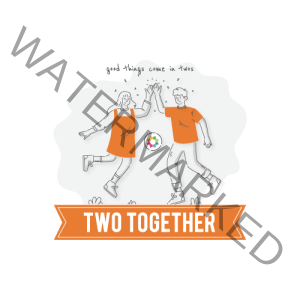
Cancel Culture:
Is this the age of trial by media?
- Atilla Tiriyaki
- Average Reading Time: 4 minutes
- Community
- articles, atillat
In the days before the internet, we would typically get our gossip, news and awareness of the latest scandals through the media. Magazines, newspapers and television coverage were the primary sources of what a particular celebrity or public figure was up to or caught doing. From sexual misconduct to financial crimes, many of these stories come from trained journalists. Many of those journalists take the time to obtain evidence when investigating a story. Often, validating and ensuring that all of the many facts that form the basis of the story are accurate before it could go public.
The pace of news and breaking of stories was slower, often giving the accused time to respond and present their side of the story. Though often damaging to lives and careers, many were allowed to show remorse and put right many of their wrongs. If successful, it would usually be referred to as a comeback or career 2.0.
In 2021, it is estimated that over sixty per cent of the world’s population currently have access to the internet, many of which own a smartphone with internet access and a high-quality camera. People now can use online services on the move, and integrated cameras mean that ordinary people can instantly share stories and images. With so many online platforms available, such as Twitter, Facebook, and Reddit, it is easy for people to share their experiences with large audiences instantly. First-hand accounts and stories that previously would be offered exclusively to the many traditional media outlets.
Stories can break instantly, often from unknown users or unverified accounts that can become viral and shared millions of times. The fast pace of news and many half-truths have resulted in a cancel culture and trial by media. Opinions and judgements are formed before the accused even has the opportunity to respond to any of the accusations made.
Today, it is often difficult to distinguish between fact and fiction. New media-savvy individuals and companies are now using online communication methods to create confusion. Often by using fake news as a method of stopping and even discrediting genuine scandals and stories. Though the pace and the fact that anyone can share stories can cause problems, it has also exposed how traditional media historically controlled what was made public and the flow of information.
With many powerful and well-connected business leaders owning the many media outlets and employing well-known and respected journalists, the process could be open to abuse. Some stories could be presented with biased opinions, angles or stopped altogether. When you consider some of the most recent and significant movements, would they have had the same impact or reach as many people if it had not been for the freedom of online platforms?
For example, the #metoo movement highlighted many well-known and influential individuals and how they abused their power and all of their sexual misconducts. The online forums gave the survivors the opportunity to share their stories and expose what had happened without being censored or being stopped from telling their truths. For Black Lives Matter, what if witnesses were unable to record and share their videos? The videos capturing the horrific events that sadly led to the death of George Floyd, which in turn started a global movement. The truth is, there is the possibility that historically that these types of stories, accounts, and pictures might have been suppressed or destroyed. They might not have ever been seen by the general public and never gone on to become a catalyst for change.
The reality is that traditional media and online platforms are both flawed. Each method offers the opportunity for everyday people to find out what is going on around them and, hopefully, the truth. However, both can be biased and based on misinformation. Of course, both can also cause irreparable damage and ruin lives if abused.
Some might ask, why would anyone lie or make up fake news? Traditional media lived for sensationalism, for stories that created a lot of interest. An exciting headline would result in large numbers of people buying a particular magazine or newspaper to read all about it. The better the story, the bigger the coverage and number of viewers for television shows and news stations, all in the battle to become the most-watched. Today, someone with a handful of followers can see that number increase by thousands overnight simply because of sharing a story, meme, picture or video.
In modern times, ordinary people can go from unknown to an influencer because of a story or scandal. Though it is an incentive for some, it is very different for those who have survived a horrific ordeal. For them, It is likely not financial; instead, the desire to seek justice to be served.
When an online story breaks, it will often trend and be reshared by people thousands of times instantly. Alongside each story are thousands of comments, the views and opinions of ordinary people. Many of these comments are typically accompanied by online trolls using anonymity to add their usual and predictable brand of online abuse. Regardless of the facts, people will naturally form their opinions and pass judgment without knowing whether the story is actually true or not. The thousands of comments and reshares often overtake the original story and, in most cases, can be seen as factual in just a matter of days.
The accused’s response or comments are ignored or lost in the sea of replies. The reporting and sharing often act more like a game of whispers. Often, with more being added to the original story and treated by readers as trusted and matter of fact. Often, people believe that if everyone is saying it, it must be true.
Anyone growing up within the online era has to be constantly aware of what they say online and what they share throughout their lives. An immature comment or reference made when they have limited life experience or an inappropriate image can come back to haunt them in the future. The risk is heightened if the person goes on to become famous or in the public eye. Often, once they reach the height of their success, an old post or comment comes to light and typically has grave consequences for them.
Loss of sponsorship deals, employment and even in serious situations, legal proceedings brought about because of something they did or had said years before. Something that has surfaced that often has been long forgotten. When the story breaks, some of those affected will create a video or text response. Though emotional, the apology is often less about what they have done and more about limiting or stopping the story’s impact on their lives.
It is said that we are all the product of our environments. If you live in communities that lack diversity, you are probably more likely to believe in prejudices and stereotypical ideals of individuals or groups. Coupled with immaturity can often be a dangerous combination for many young people. A young person who decides to share their limited worldview will likely forget about what was said. Though it is wrong for them to have and share these ignorant views and opinions, their actions and behaviours can harm and haunt them for the rest of their lives without them even knowing about it.
The reality in all situations and scenarios is often about context and, of course, severity. For example, an immature post made by someone in their youth is not the same as someone who abused their power and privilege for years. On the flipside, the lack of online context has meant that stories that would have been suppressed are now rightfully coming to light, and the perpetrators are finally facing justice. There is, however, a responsibility. The responsibility is on all of us reading these posts and stores to follow up and investigate before treating them as fact. What is the source of the story? Is the source reliable? And, of course, what is the evidence to support the story?
Another vital question is, why is the story coming to light now? If someone has been a celebrity for many years, how could a 20-year post suddenly come to light? Entertainment is a large and lucrative industry, which likely means that many entertainment companies and agents will conduct a risk assessment on their clients and talents. Typically, they will use experienced investigators to access and review these high-profiled individuals in a bid to establish risky posts and potential dangers. Though these stories may seem like a revelation, the reality is that many business professionals are adept and work well within the new online platforms. A story of a 20-year negative post can be used in a helpful way, especially when terminating an expensive sponsorship contract due to a scandal or a way for businesses or individuals to impact their competition negatively.
Racism, sexism, homophobia and other outdated and harmful views should not be out there, especially not widespread. However, before forming any judgements, it is crucial to consider a story’s context and severity. A serious crime should be highlighted, and the perpetrators should be brought to justice. However, concerning immature posts, though many of the views and opinions are be wrong, it is essential to remember that people often grow and mature. Does the person who made the post still hold the same ideas and feelings? If the answer is no, have they shown any regret or remorse for their actions and words?
We fear what we do not know, which could be one of the main reasons for many of these views and opinions. One example might be that people dislike a minority group because of the limited information they know about them, causing them to hold outdated beliefs. Alternatively, people might be projecting their feelings towards a particular group because they struggle to accept something about themselves.
Imagine all those people who comment trying to engage with the person at the root of the scandal. Reaching out to establish if they still feel the same way they did and what motivated them to create the original post. By engaging directly with them, you would be able to understand any rationale. If you do not agree with the views or opinions, take time to help them understand why you feel their views and opinions are incorrect. Ultimately, it is about spending a little time to find out the facts before the masses implode a person’s entire life or call for the cancellation of their livelihoods. For minor errors and misjudgements, can there not be room for comebacks and genuine remorse in the world of cancel culture or trial by media?
























